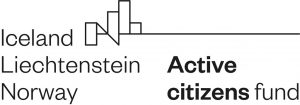On 16 July 2020, the Constitutional Court unanimously passed a historic decision [1] on the exception of unconstitutionality of Article 164 paragraph (1) of the Civil Code on the legal guardianship of adults with disabilities. In this case, in 2017, CLR filed an Amicus Curiae in support of plaintiff N.A. and in support of the exception of unconstitutionality of art. 164 (1) of the Civil Code about placement under legal guardianship, showing that it “does not comply with the requirements imposed by an international human rights treaty to which Romania is party, […] is unconstitutional, as it contravenes art. 11 para. (1) (fulfilling in good faith the obligations imposed by international treaties) as well as art. 20 (supremacy of international human rights treaties) of the Constitution. ”
The project aims to increase the capacity of persons with mental disabilities, stroke and dementia to exercise their rights and to maximise their autonomy. The project will develop and pilot four models of supported decision making services in collaboration with public and private social service providers. These services will be promoted at the legislative level as an alternative to guardianship measures. People with disabilities, their families, NGOs representatives, personal assistants, caregivers will be trained in applying supported decision making tools. The right to be included in the community and social inclusion will be promoted through an advocacy campaign by informing, counselling and representing persons with disabilities before the competent authorities, and by lodging legal actions before courts.
About the project:
Persons with mental disabilities are often denied legal capacity, through the measure of legal guardianship. Considered incapable persons of taking care of their own interests, decisions are made by the guardian. They can’t sign contracts, they can’t decide how, where or with whom to live, they can’t access a bank account, they can’t get married, they can’t file complaints in their own name. The replacement of the decision affects their right to liberty, privacy and family life, work, physical integrity, and free movement. By the measure of legal guardianship, persons are practically excluded not only from the natural dynamics of the society, but also from their own life. They do not have the opportunity to identify an abuse, to make a complaint, they do not have people who support them. The Civil Code and the paternalistic attitude of public actors are barriers to the exercise of legal capacity. The measure is lifted in court, requiring material, human resources, time, and will.
The implementation of supported decision making services for persons with mental disabilities is necessary in order for them to live independently and to make their own decisions with or without support. The current legal framework does not allow persons under guardianship to exercise their legal capacity, considering them incapable of caring for their own interests. A legal guardian makes all decisions on their behalf, without them being able to sign contracts, work, decide how, where or with whom to live, access a bank account, get married or lodge complaints on their own behalf.
Currently, in Romania there are approx. 45,000 persons were placed under legal guardianship, over 3,000 of them being institutionalised in residential centres for people with disabilities, and about 4,000 being hospitalised in psychiatric hospitals. The Convention on the Rights of Persons with Disabilities, ratified by Law no. 221/2010, recognizes their right to act equally with others in all aspects of life and obliges the state to implement supported decision measures for people with disabilities. About the Romanian Constitutional Court decision: https://www.crj.ro/ccr-a-decis-punerea-sub-interdictie-este-neconstitutionala/
The project aims to:
▶ To develop and pilot in a 12-month period four new models and a package of tools to supported decision-making (non-existent in Romania at the moment);
▶ Promote respect for the right to supported decision-making, with the participation of vulnerable groups, among decision-makers and the general public;
▶ To develop the skills of beneficiaries in the field of application of supported decision tools and awareness of their role in the inclusion of people with disabilities in the community;
▶ To develop the team’s skills and their transmission to the beneficiaries and the general public.
Activities:
▶ Information and communication in order to change the social paradigm;
▶ Amend the legislation, in the sense of introducing the supported decision-making, review the conditions under which the legal guardianship measure may be ordered, as well as review the institution of guardianship.
▶ Creation of the coordination team and the teams for the implementation of the Supported Decision – Making Model, an alternative to the legal guardianship measure.
▶ Piloting Supported Decision Making Services in accordance with art. 12 and 13 of the Convention on the Rights of Persons with Disabilities (CRPD).
▶ Strategic litigation to lift the legal guardianship, prevent or sanction abuses, and facilitate access to independent living in the community and health care services.
▶ Working groups for the dissemination of supported decision-making tools (SDM) and the mobilisation of vulnerable groups, professionals and public actors.
Implementation period:
15.02.2021 – 14.08.2023
Funding:
The project is carried out by the Centre for Legal Resources (CRJ) and benefits from a funding amounting to 247,267.40 Euro non-reimbursable financing, through the Active Citizens Fund Romania program, financed by Iceland, Liechtenstein and Norway through the EEA Grants 2014-2021. The total budget of the project is 269,109.98 Euros, with a co-financing from CRJ of 21,842.58 Euros.
The content of this web page does not necessarily represent the official position of the EEA and Norwegian Grants 2014-2021; for more information visit www.eeagrants.org. Information about Active Citizens Fund Romania is available at www.activecitizensfund.ro.

